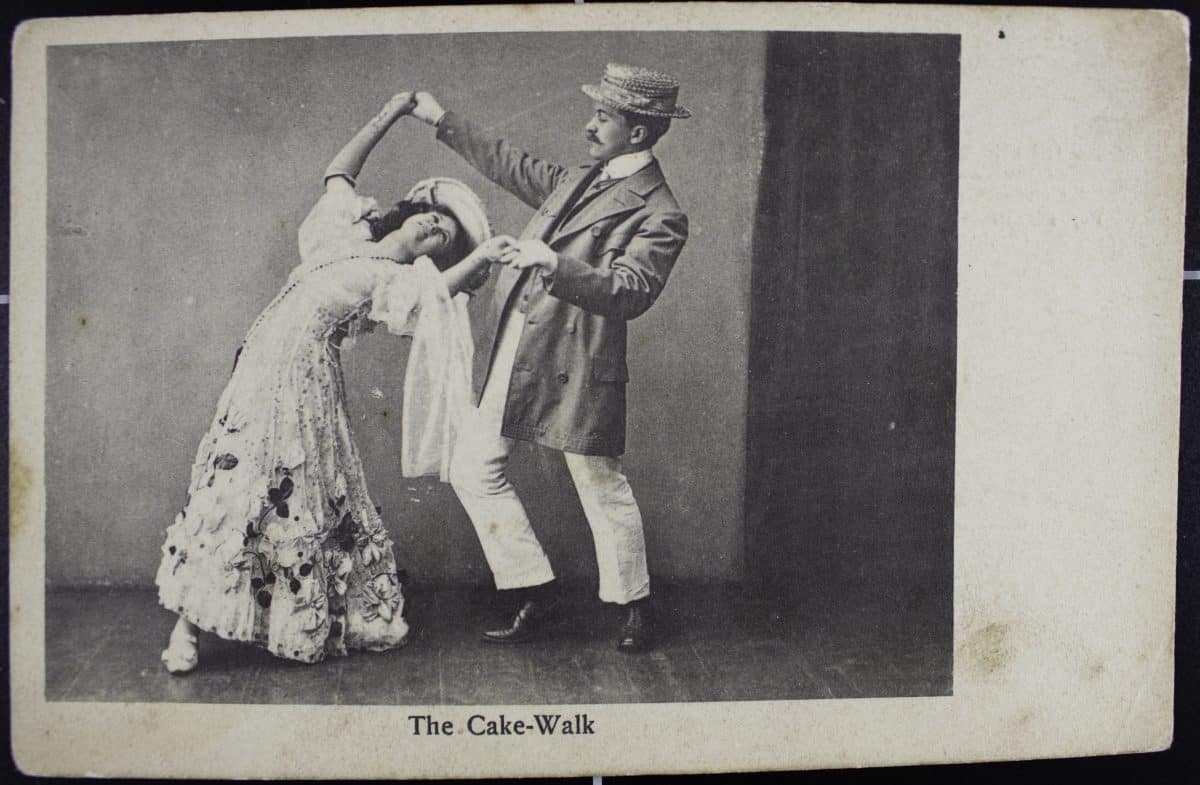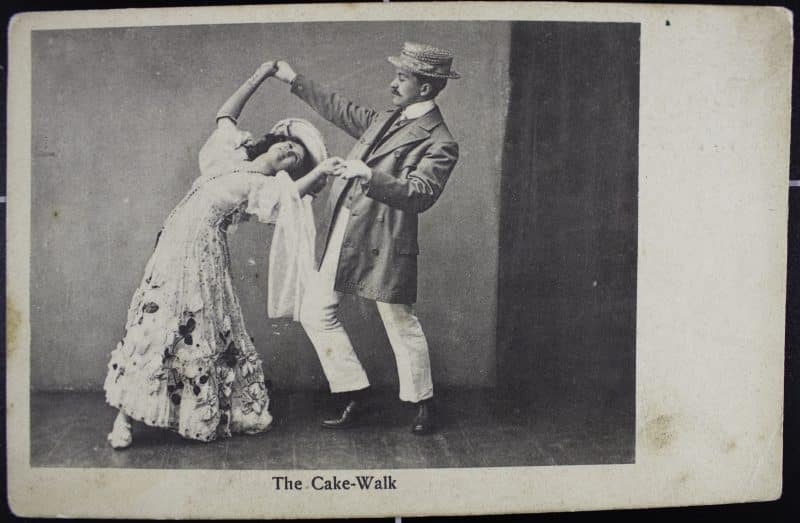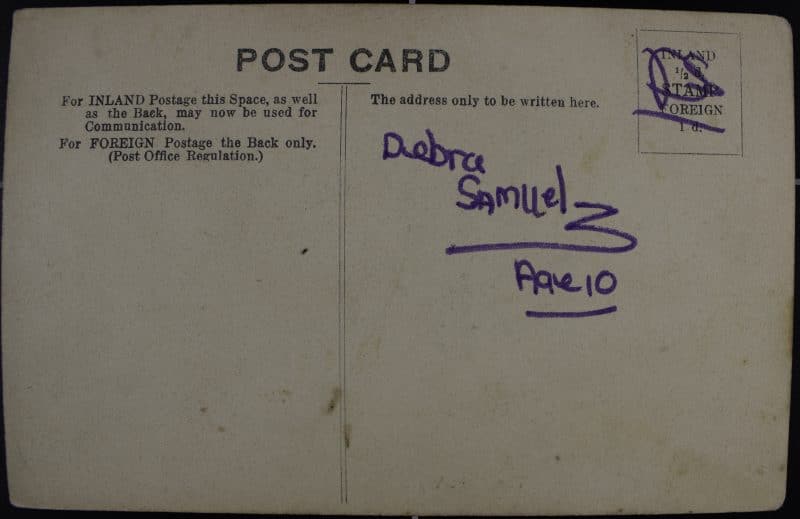From NPR: “The cakewalk was a pre-Civil War dance originally performed by slaves on plantation grounds. The uniquely American dance was first known as the “prize walk”; the prize was an elaborately decorated cake. Hence, “prize walk” is the original source for the phrases “takes the cake” and “cakewalk.” Here’s how the dance worked: Couples would stand in a square formation with men on the inside perimeter and then dance around the ballroom “as if in mimicry of the white man’s attitudes and manners,” according to Richard Kislan. The steps included “a high-leg prance with a backward tilt of the head, shoulders and upper torso.” Plantation owners served as judges for these contests — and the slave owners might not have fully caught on that their slaves might just have been mocking them during these highly elaborate dances.
In the 1912 novel The Autobiography of an Ex-Colored Man, James Weldon Johnson has a character describe attending a cakewalk during the Reconstruction era:
“Then the floor was cleared for the cake-walk. A half-dozen guests from some of the hotels took seats on the stage to act as judges, and twelve or fourteen couples began to walk for a sure enough, highly decorated cake, which was in plain evidence. The spectators crowded about the space reserved for the contestants and watched them with interest and excitement. The couples did not walk round in a circle, but in a square, with the men on the inside. The fine points to be considered were the bearing of the men, the precision with which they turned the corners, the grace of the women, and the ease with which they swung around the pivots. The men walked with stately and soldierly step, and the women with considerable grace.”
By the 1870s, a cakewalk was a popular feature of minstrel shows.
to read more go to click url link above or go to below:
https://www.npr.org/sections/codeswitch/2013/12/23/256566647/the-extraordinary-story-of-why-a-cakewalk-wasnt-always-easy#:~:text=The%20cakewalk%20was%20a%20pre,cake%22%20and%20%22cakewalk.%22
sold from a dealer in the netherlands



